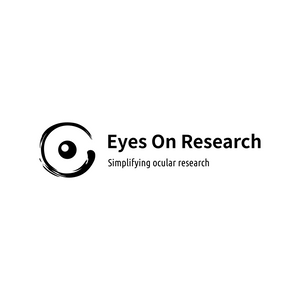If you are like me, nothing beats a good cup of coffee in the morning. I need to have my cup of coffee every morning for the day to make sense (literally!). Could I be damaging my eyes in any way?
Interestingly, it seems like there is some sort of relationship between caffeine consumption and the eyesight. Data coming from several research studies suggested that there may be indeed a correlation between your cup of coffee and some diseases in the eye. Amongst these conditions, glaucoma has had its own (large) share of investigations. We do have a full podcast episode on the associations of caffeine with the eyesight, so feel free to check it out in your favourite platforms if interested.
What is glaucoma?
We know that glaucoma is an optic neuropathy, meaning that it affects the optic nerve, which is this straw-like structure that takes the information coming from all sides of our retinas to our brains. Now, if you ask why is it that a certain individual has glaucoma, that’s a different story: we ourselves are not 100% certain of why some people have glaucoma.
There are several subtypes of glaucoma, such as closed-angle and open-angle glaucoma, with the latter being the most common. The “angle” here refers to, very simplistically, the drainage channels in the eyes. This is relevant because we have a liquid circulating in the front segment of our eyes named aqueous humour. When the drainage channels are closed, this liquid won’t be able to be leave the eye, which may build up the pressure inside the eye, pushing against and putting strain in the structures in the back section of the eye (including the optic nerve). Hence, we do understand closed-angle glaucoma quite well; when it comes to open-angle though, although raised intraocular pressure remains as the biggest risk factor, there are a myriad of other things highly associated with it.
Indeed, open-angle glaucoma is a complex multi-factorial disease, meaning that there are many factors that can put people under a higher risk of glaucoma, from genetics to environmental things. There have been many large-scale studies – some which were very recent – evaluating all sorts of different associations with this disease, such as short-sightedness, smoking and even race/ethnicity. You may not be surprised that coffee also been linked with glaucoma development.
What does the evidence suggest?
It is impossible to summarise the entire body of evidence, so let’s discuss a few selected studies. A study published in 2012 tried to evaluate the association between caffeine consumption and a specific subtype of glaucoma. The authors found evidence linking high coffee consumption with an increased risk for glaucoma, which was strongest in women with a positive family history of glaucoma (meaning, when there were other family members affected). More specifically, drinking 3 cups or more of coffee per day was linked to an increased risk of developing glaucoma, which was statistically significant. Similarly, a South Korean study published in 2020 also found a link between caffeine consumption and a higher risk of open-angle glaucoma; this time, it was statistically significant in men, but not in women.
In 2021, however, a study published in Ophthalmology, a highly respect journal in the field, tried to assess, with a quite sophisticated approach, the correlations between habitual caffeine intake, intraocular pressure and glaucoma development (taking into consideration also genetic predisposition). They used a huge amount of data coming from the UK Biobank – a large-scale biomedical database containing information on lifestyle, general health and genetic composition from 500,000 UK individuals. Their findings did not support a causal effect of coffee drinking on intraocular pressure. Similarly, the authors did not find a strong association between habitual caffeine consumption and glaucoma. However, they did find that higher caffeine consumption was associated with higher intraocular pressure and glaucoma in individuals who already had a genetic predisposition to having raised intraocular pressure. Then, another study published in the same journal in 2022 corroborated those previous findings by providing genetic evidence that higher caffeine intake is indeed associated with a higher risk of developing open-angle glaucoma.
Do I need to stop drinking coffee?
Every case will be different, with your doctor being in a much better position to make that call as he can analyse any changes that you may have had in your visual fields, or in the scans, and how high your intraocular pressure is. It is all about balance. Truth be told though, I would not worry that much or lose sleep over it in the (vast) majority of cases. Although there is now significant evidence suggesting this association between increased intraocular pressure, glaucoma and caffeine consumption, this seems to be more relevant for patients who have glaucoma running in their families. This risk is indeed relevant, but more so where there is genetic influence, with the people at a higher risk being the “heavy” coffee drinkers. If you go through the path of moderation, as you should do with all things in life, you may as well be able to enjoy your coffee and your tea – with moderation being the keyword!
Stay safe. I will see you soon!
________________________________
Thales A. C. de Guimaraes, MD, PhD
Host and Founder | Eyes On Research
